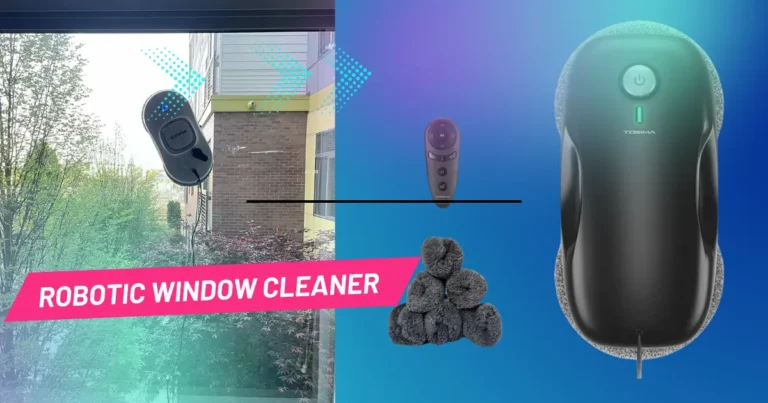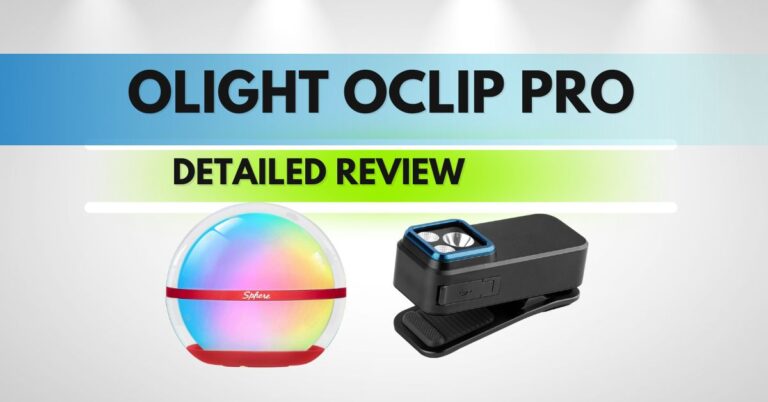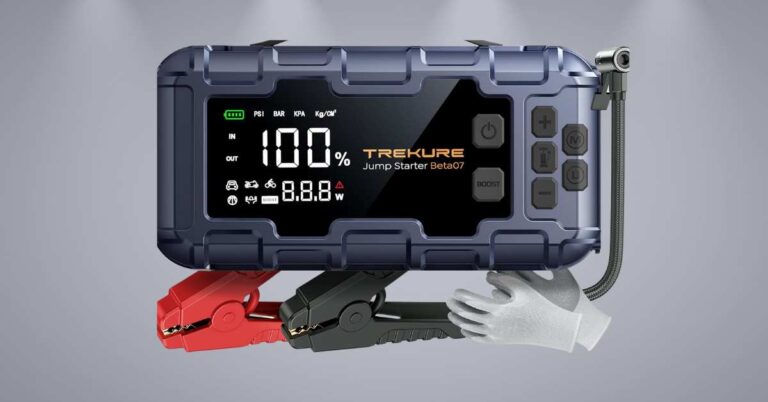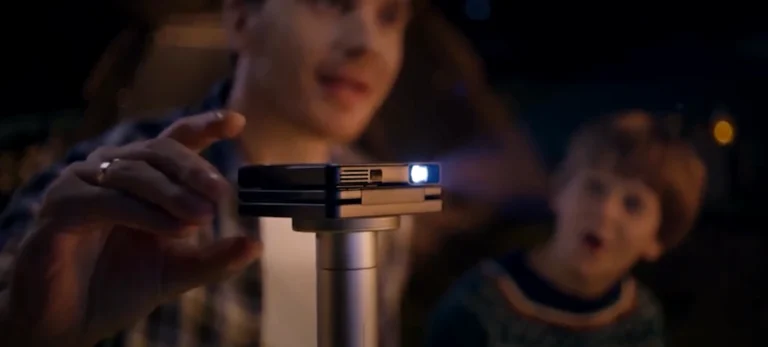The need for clean, sustainable water is growing worldwide rapidly. Eco-friendly water purification systems play a key role in this. These systems give us safe drinking water and help protect our environment. In this guide, we’ll look at the top eco-friendly water purification systems for your home. We’ll cover their features, benefits, and long-term advantages.
Key Takeaways
- Eco-friendly water purification systems offer a sustainable alternative to traditional methods, reducing environmental impact.
- These systems can provide clean, safe drinking water while promoting cost savings over time.
- Various technologies, such as chemical-free filtration, energy-efficient designs, and natural materials, are used in eco-friendly water purifiers.
- Proper maintenance and monitoring of these systems are essential to ensure long-term performance and efficiency.
- Integrating eco-conscious water purification with smart home technologies can further enhance water conservation and sustainability.
Understanding the Importance of Sustainable Water Filtration
We’re all becoming more aware of how we affect the planet. This awareness makes sustainable water filtration more important than ever. Traditional methods use a lot of energy and create a lot of waste. But, sustainable filtration helps us reduce our impact and enjoy clean water.
It also saves us money in the long run.
Environmental Impact of Traditional Water Purification
Old water treatment systems use chemicals and lots of energy. This makes a big carbon footprint. On the other hand, green home water treatment uses renewable resources and makes less waste.
This makes it a better choice for our planet.
Health Benefits of Pure Water
Drinking clean water is good for our bodies. It helps us stay healthy by removing bad stuff. This means better digestion, skin, and a stronger immune system.
Cost Savings Over Time
At first, sustainable filtration might cost more. But, it saves money in the long run. It cuts down on bottled water and filter replacements.
It also saves on energy bills.
Choosing sustainable filtration is smart for our planet and ourselves. It’s a way to make our homes and the planet better.
Top Features of Green Home Water Treatment Solutions
Choosing an eco-friendly water purification system for your home is a smart move. Look for solutions that are sustainable, efficient, and use new technologies. Eco-friendly home water treatment solutions have many features that are great for the planet.
These systems have a low environmental impact. They use less energy and water, which helps reduce your carbon footprint. Plus, they often use renewable or recyclable materials, making them even better for the environment.
Eco-friendly home water treatment systems also feature an advanced filtration system. They use new technologies to remove many contaminants such as heavy metals, chemicals, bacteria, and more, all without harsh chemicals. This way, you get clean, safe water to drink.
| Feature | Benefit |
|---|---|
| Energy-efficient operation | Reduced electricity consumption and lower utility bills |
| Minimal water waste | Conserves a precious natural resource |
| Recyclable or biodegradable components | Reduces landfill waste and supports a circular economy |
| Advanced filtration technology | Removes a wide range of contaminants without chemicals |
Choosing a green home water treatment solution is good for you and the planet. These systems last a long time, so you don’t need to replace them often. They are a cost-effective way to purify your home’s water.
“Investing in a green water treatment system is not only good for the environment, but it’s also good for your health and your wallet in the long run.”
Eco-Friendly Water Purification Systems for Home Use: A Comprehensive Guide
Homeowners are now looking for ways to be more sustainable. They want eco-friendly water purification systems. This guide will help you understand these systems and make the right choice for your home.
Chemical-Free Filtration Methods
Eco-friendly systems use chemical-free methods to clean water. They use natural materials and processes. This way, your water stays pure and safe, without harmful chemicals.
Energy Consumption Ratings
Energy efficiency is key for eco-friendly systems. The best systems use very little energy. This helps the planet and saves you money on bills.
Installation Requirements
Installing eco-friendly systems should be easy. Many are designed for homeowners. They need little setup, so you can enjoy clean water easily.
“Investing in an eco-friendly water purification system is not only a smart choice for your home, but it’s also a responsible decision for the planet.”
If you care about the environment or want a sustainable solution, this guide is for you. Learn about eco-friendly systems to choose the best one for your home. This will help make your future greener and healthier.
Reverse Osmosis Systems:
Reverse osmosis systems are a key player in sustainable water filtration for homes. They offer clean drinking water and are good for the environment.
This technology works by removing impurities from water. It uses a special membrane to filter out heavy metals, minerals, and bacteria. This is done without harsh chemicals or a lot of energy, making it a sustainable filtration method.
One big plus of reverse osmosis systems is they waste very little water. Unlike other methods, they don’t throw away 4 gallons of water for every gallon of clean water. This saves water and lowers your bills, making them environmentally friendly drinking water solutions.
| Feature | Benefits |
|---|---|
| Efficient Water Usage | Reduces waste and conserves water resources |
| Chemical-Free Filtration | Eliminates the need for harsh chemicals in water purification |
| Energy-Efficient Operation | Minimizes energy consumption during the filtration process |
Choosing reverse osmosis systems is a smart move for our homes and the planet. They use water wisely, don’t need chemicals, and save energy. These systems are a green choice for a better future.

“Reverse osmosis systems represent a significant step forward in providing environmentally friendly drinking water solutions for our homes.”
Natural Filtration Methods Using Sustainable Materials
We look for ways to purify water that are good for the planet. Natural methods that use sustainable materials are a great option. They clean water well and don’t harm the environment, making them perfect for those who care about the planet.
Activated Carbon Filters
Activated carbon filters are a trusted way to clean water naturally. They soak up many contaminants like chlorine and heavy metals. Made from materials like coconut shells, they’re a green choice compared to chemical filters.
Ceramic Filtration Technology
Ceramic filters use clay to clean water. They block bacteria and viruses, making water safe to drink. These filters last a long time and are easy to clean, making them a smart choice for your home.
Bio-Sand Solutions
Bio-sand filters clean water naturally. They use sand and gravel to catch dirt and a special layer to break down organic matter. They’re easy to take care of and use materials that are good for the planet.
| Filtration Method | Key Benefits | Sustainability Features |
|---|---|---|
| Activated Carbon Filters | Effective removal of chlorine, pesticides, and heavy metals | Made from renewable sources like coconut shells or bamboo |
| Ceramic Filtration | Capture bacteria, protozoa, and some viruses | Durable, long-lasting, and easily cleanable |
| Bio-Sand Filters | Utilize physical, biological, and chemical processes to purify water | Low-maintenance, energy-efficient, and can use locally sourced materials |
Exploring natural water filtration methods is a great way to get clean water and help the planet. These methods are good for the environment and make living sustainably easier. They’re a smart choice for anyone looking to reduce their impact on the planet.
Check on Amazon
Smart Water Purification Technologies
Smart technologies have changed the game in eco-conscious water purification. They mix energy-saving water purification with green methods. This gives us a sustainable way to get clean drinking water at home.
These smart systems let you monitor water quality and get alerts for maintenance. They keep track of your water’s health. This means your system works better and lasts longer.
They also connect with home automation systems. This makes controlling your water purification easy. You can change settings, schedule maintenance, and get alerts on your phone or with voice commands.
These smart systems save money too. They use less energy and make filters last longer. This makes getting clean drinking water both good for the planet and your wallet.
“The future of water purification lies in the seamless integration of technology and environmental responsibility. These smart systems are paving the way for a greener, more efficient way to quench our thirst.”

As we focus on being green and protecting the environment, smart water tech is leading the way. It shows the creativity and commitment of innovators to make our homes more eco-friendly.
Maintenance and Longevity of Eco-Conscious Systems
Keeping your eco-friendly water purification system in top shape is key. This ensures it works well for a long time. By following a few easy steps, you can keep your system clean and efficient for years.
Filter Replacement Schedules
How often you need to replace filters depends on your system and local water quality. Usually, filters should be swapped out every 6-12 months. This keeps your system running smoothly and removes harmful particles.
System Cleaning Guidelines
- Use a damp cloth to wipe the system’s outside and remove dust or dirt.
- Follow the maker’s guide to clean the inside parts, like the tank or tubes.
- Stay away from strong chemicals or rough cleaners, as they can harm the system.
Performance Monitoring Tips
Watch how your system performs by checking the water quality often. If the taste, smell, or clarity changes, it’s time for a check-up. Some systems even have alerts when it’s filter time.
| Maintenance Task | Recommended Frequency |
|---|---|
| Filter Replacement | Every 6-12 months |
| System Cleaning | Quarterly |
| Performance Monitoring | Ongoing |
By taking care of your eco-friendly water system, you get clean water and help the planet. A bit of effort goes a long way in keeping your system working well for years.
Cost Analysis: Investment vs. Long-term Benefits
Thinking about getting eco-friendly water purification systems for your home? The cost upfront might seem high. But, looking closely, these systems offer big benefits over time that make them worth it.
Going for eco-friendly systems might cost more at first than old-school filters. Yet, the long-term savings and perks make them a smart pick. They help cut down on environmental harm and give you clean water.
| Cost Comparison | Eco-Friendly Water Purification | Conventional Water Filtration |
|---|---|---|
| Initial Investment | $300 – $800 | $50 – $200 |
| Ongoing Maintenance | $50 – $100 per year | $50 – $100 per year |
| Energy Consumption | Low (no electricity required) | Moderate (electricity for pumps) |
| Lifespan | 5-10 years | 2-5 years |
| Water Quality | Excellent (removes contaminants) | Good (some contaminants remain) |
The table shows eco-friendly systems cost more at first. But, they save energy, improve water quality, and last longer. These points make them a smart choice for those wanting sustainable filtration and environmentally responsible home hydration systems.
“Investing in eco-friendly water purification is not only good for the environment, but it can also save you money in the long run.”
By looking at the costs and benefits, homeowners can choose wisely. They can pick eco-friendly water purification systems that fit their values and benefit their homes and the planet.
Comparing Different Sustainable Filtration Methods
As homeowners and eco-conscious consumers, we have many sustainable filtration options. We’ll look at the pros and cons of UV purification systems, mineral-based filters, and multi-stage filtration.
UV Purification Systems
UV purification systems use ultraviolet light to kill bacteria, viruses, and protozoa. They are energy-efficient, making them a top choice for sustainable filtration. But, they don’t remove dissolved minerals or heavy metals. So, they might need to be used with other methods for complete eco-conscious water purification.
Mineral-Based Filters
Mineral-based filters, like those using zeolite or volcanic rock, are natural and environmentally friendly. They remove contaminants and add beneficial minerals, improving water taste and nutrition. These systems use renewable materials, fitting well with the demand for eco-conscious water purification strategies.
Multi-Stage Filtration
Multi-stage filtration systems use different techniques to remove many contaminants. They include sediment filtration, activated carbon adsorption, and ion exchange. These systems often use sustainable filtration materials and offer high water quality with less environmental impact.
| Filtration Method | Contaminant Removal | Energy Efficiency | Sustainability |
|---|---|---|---|
| UV Purification | Bacteria, viruses, protozoa | High | Moderate |
| Mineral-Based Filters | Wide range, including dissolved minerals | Moderate | High |
| Multi-Stage Filtration | Comprehensive, including heavy metals | Moderate | High |
Understanding these sustainable filtration methods helps homeowners choose the best eco-conscious water purification strategies. This way, they can get pure water and help the environment.
Water Conservation Features and Benefits
Eco-friendly water purification systems for home use are good for the environment. They also save a lot of water. These green home water treatment solutions help use water wisely, keeping it safe for the future.
These systems cut down on water waste during the filtration process. They use advanced tech like reverse osmosis. This tech cleans water well but uses less water.
- Reduced water waste during the filtration process
- Efficient use of water resources through advanced purification technologies
- Optimized water flow and pressure to conserve water usage
Eco-friendly water systems also help save water in other ways. They make it easier to have clean drinking water at home. This means we use less bottled water. Bottled water needs a lot of energy and water to make and transport.
| Feature | Benefit |
|---|---|
| Reduced water waste during filtration | Conserves water resources and promotes sustainable usage |
| Efficient water flow and pressure | Minimizes unnecessary water consumption |
| Decreased reliance on bottled water | Reduces the environmental impact associated with bottled water production and transportation |
By using these systems, we get clean drinking water and help save water. This is good for our planet and for future generations.

Integration with Smart Home Systems
The world is getting greener, and smart home tech is leading the way. Now, we can have clean water and control it all with our devices. This makes living sustainably easier and more fun.
One big plus is saving energy. Smart water purification technologies adjust to how much water we use. This means less energy used and less harm to our planet.
Also, we can keep an eye on our water use in real-time. We can see how our filters are doing and get reminders to change them. This keeps our energy-efficient water purification system working well.
But it’s not just about saving energy. It’s also about making our lives easier. We can control our water filters with our voices or apps. It’s all about making things simple and fun.
“The integration of eco-conscious water purification and smart home technologies is a game-changer, empowering homeowners to take control of their water consumption and environmental impact.”
As we aim for a greener future, combining smart water purification technologies with our homes is a big step. It helps us live more sustainably and efficiently.
The 5 Best Water Filters for 2025:
| Image | Product | Detail | Price |
|---|---|---|---|
 | iSpring RCC7 |
| Price |
 | ZeroWater 10-Cup 5-Stage Pitcher |
| Price |
 | Brita UltraMax Elite |
| Price |
 | Waterdrop Glass |
| Price |
 | Bluevua RO100ROPOT |
| Price |
Conclusion
Eco-friendly water purification systems are essential for a sustainable home. They help us get clean water while being kind to the planet. These systems also improve our health and save money in the long run.
Using eco-friendly water purification systems for home use helps us live greener. They ensure that our families have access to clean water. With new sustainable filtration technologies such as reverse osmosis, we have many options to suit our needs.
Let’s continue to choose environmentally friendly drinking water solutions for a better future. By doing so, we make our world healthier and greener for everyone.
FAQ
What are the key features of eco-friendly water purification systems for home use?
These systems use efficient, chemical-free methods to clean water. They have a low environmental impact and save energy. They aim to give you clean, sustainable water while being good for the planet.
How do eco-friendly water purification systems benefit the environment?
They use less harmful chemicals and save energy. They also use sustainable materials. This helps reduce our environmental footprint and supports conservation efforts.
What are the health benefits of using eco-friendly water purification systems?
They remove harmful contaminants like heavy metals and chemicals. This gives you clean water for drinking and cooking. It can improve your health by reducing exposure to harmful substances.
How do eco-friendly water purification systems compare to traditional water filtration methods in terms of cost?
They might cost more upfront, but save money in the long run. They need less maintenance and have longer-lasting filters. They also save on utility bills because they’re energy-efficient.
What are some natural filtration methods used in eco-friendly water purification systems?
They use natural methods like activated carbon and ceramic filtration. These materials remove contaminants without harsh chemicals or a lot of energy.
How do smart water purification technologies enhance the eco-friendliness of home systems?
Smart technologies offer real-time monitoring and automated alerts. They work with home automation systems. This makes the systems more efficient, reduces waste, and makes them easier to use.
What are the maintenance requirements for eco-friendly water purification systems?
hey need regular filter changes and cleaning. Following the manufacturer’s maintenance guidelines is key. This keeps the system working well and lasting longer.
How do eco-friendly water purification systems contribute to water conservation efforts?
They often have features that save water, like efficient filtration. They also reduce water waste during treatment. This helps with water conservation and reduces the strain on water resources.







